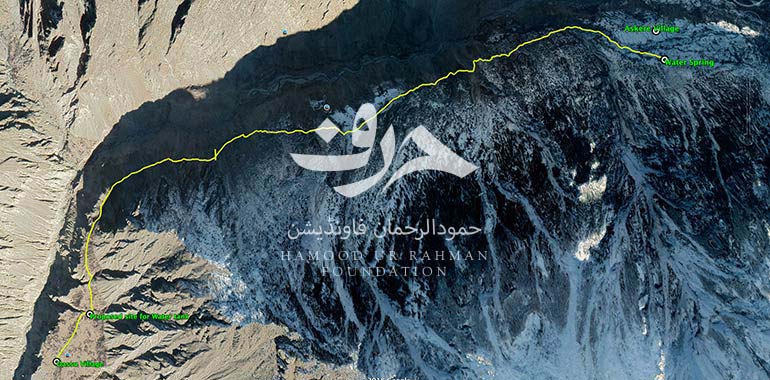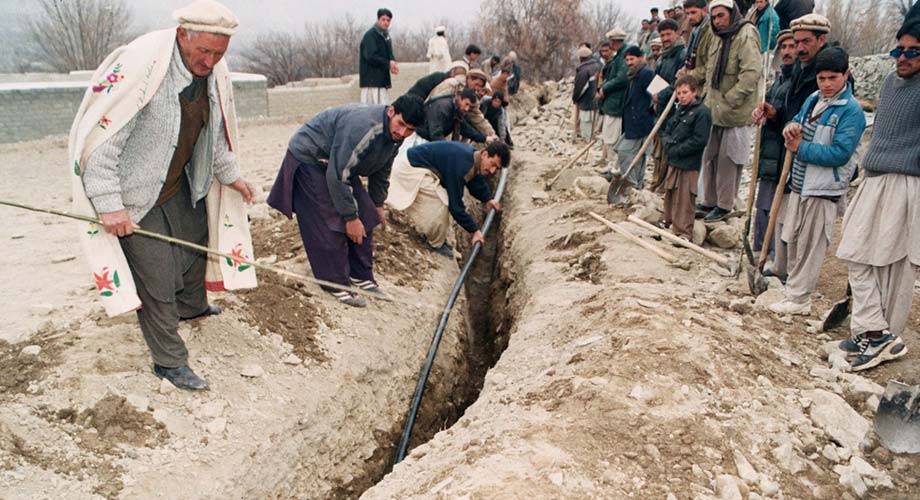Water pipeline project
Haramosh valley is located 40KM away from Gilgit City on the way from Gilgit to Skardu Baltistan. The terrain consists of several snow-covered mountains, glaciers, dense forest patches, shrub landscapes and alpine meadows. The main attractions of this valley are Haramosh peak (7409m), Laila peak (6985m) and Kutwal Lake (3260m).
Dassu village is located in Haramosh valley. A 10 kilometers long jeep track connects it to the Gilgit-Skardu Road at Sassi in the Karakoram Range. The village consists of approximately 400 houses with around 2500-3000 residents. When population numbers were small and natural resources abundant, the communities living here faced challenges linked to communication infrastructure and access to markets and services. But today, given the growing population, declining resources and changes in precipitation due to climate change, there are more challenges to face.
The scattered households have limited land-holdings and insufficient opportunities for livelihood and enterprise development. The rigors of daily chores, revolving largely around clean drinking water, consume most of the time of women and girls. With no proper water supply scheme in place, the women and children of Dassu have to walk 3 kilometers on average in order to fetch water from streams fed by melting snow. These streams, in turn, are contaminated rendering their water unfit for human consumption and have resulted in disease and recurring medical expenses. Majority of the households have reported illnesses due to these polluted channels thus falling victim to water-borne diseases. During harsh winters, women and children suffer the most, as they are the principal collectors and bearers of water, and have to undertake long journeys.
HRF’s Water Pipeline Project is an attempt to resolve this issue through communal effort. This project is designed to improve health and education levels, thus improving school attendance; gender empowerment, by reducing the time women currently spend on collecting water; and economic development as women will be given a role in this project to raise awareness with regards to health and hygiene practices. The intervention will also promote behavioral change, reduce burdens on income resulting from expenditures on health, and facilitate more productive alternatives for women and children than the collection of stream-water from distant sources. The health indicators of the residents will significantly improve with the completion of HRF’s Water Pipeline Project. It will ensure that clean drinking water is accessible to each and every household in the village.
Phase I
In the first phase of this project, equipment has been delivered to the project site along with all the required accessories. As per the agreement, the equipment has been handed over to the community of Dassu village, who are responsible for laying and maintaining the pipeline at the project site. The project site is snow-bound in winter so the installation of the water pipeline has been planned by the community for the summer. Due to Covid-19 that work could not be done with in the given time frame as butt-fusion was required to lay the available pipe at project site.




